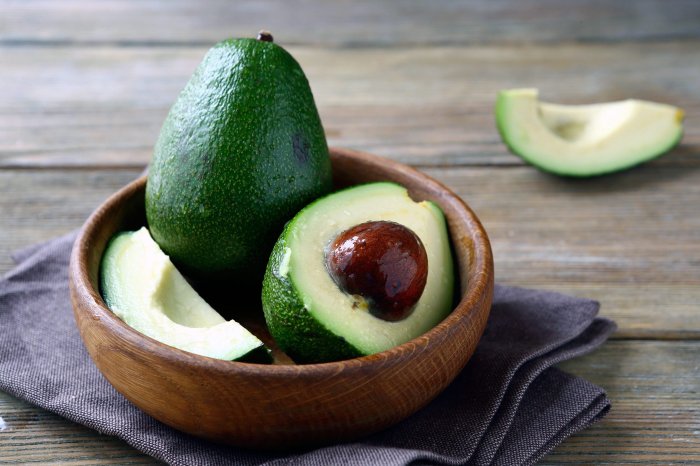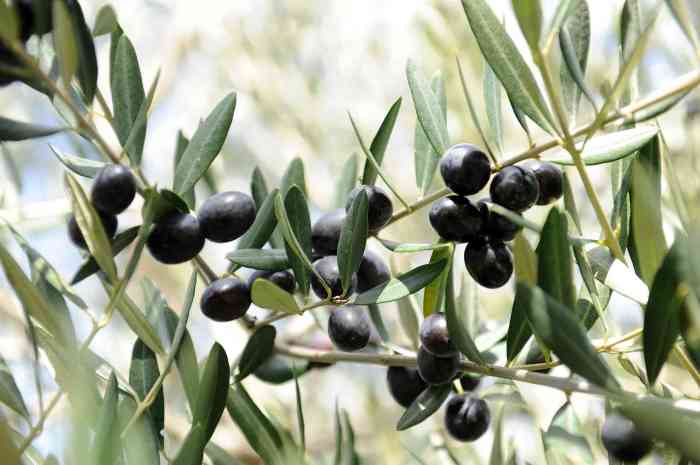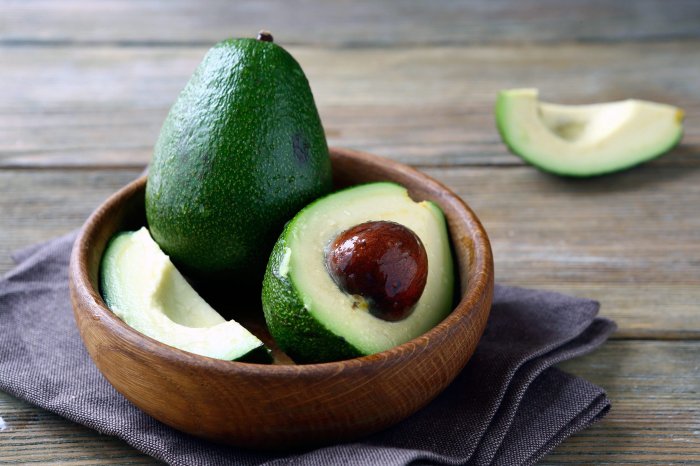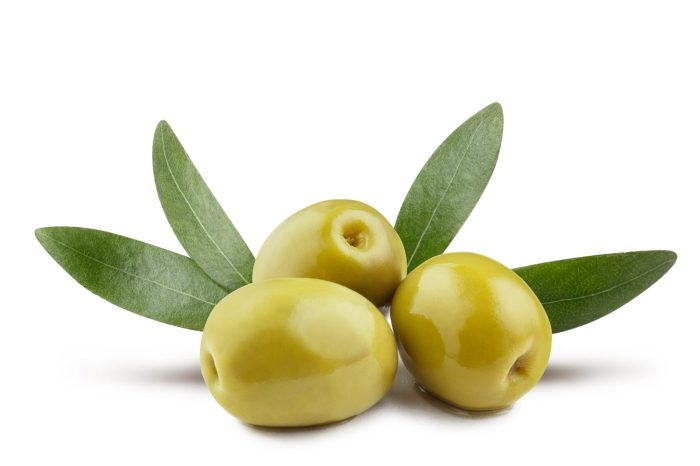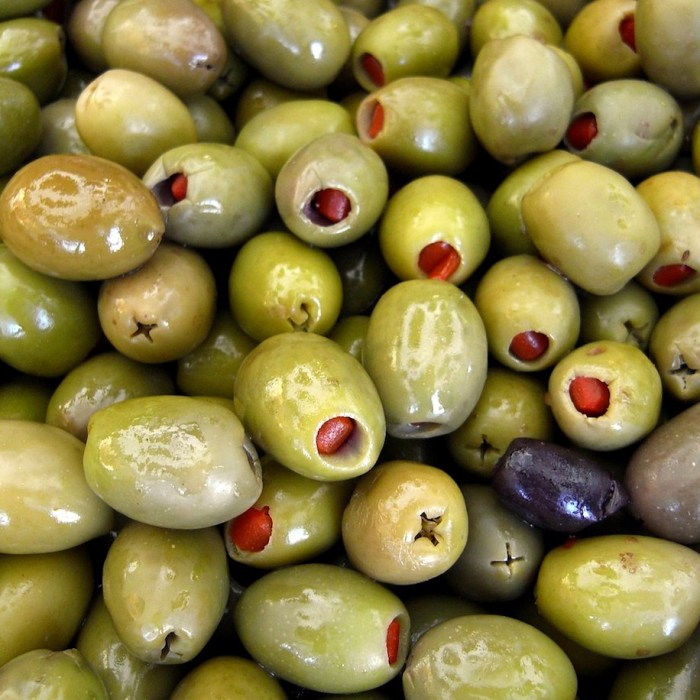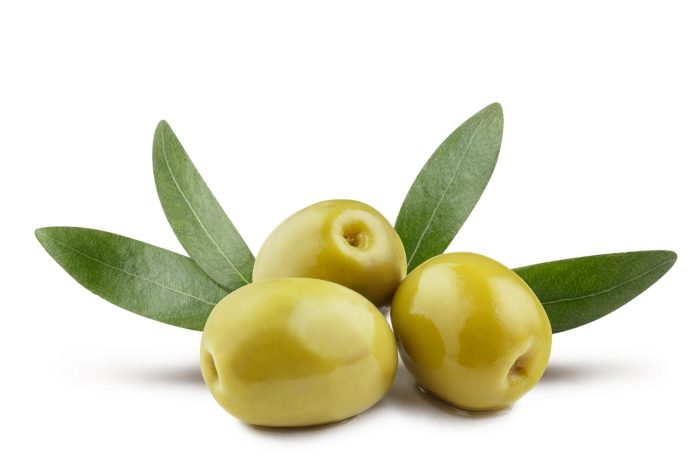Olive oil and lemon juice: a flavorful fusion that elevates countless dishes. From zesty marinades to bright dressings, this dynamic duo transforms simple meals into culinary masterpieces. This exploration dives into the world of olive oil and lemon juice, revealing their incredible versatility, surprising health benefits, and fascinating cultural significance.
We’ll delve into the diverse ways these ingredients are used in cooking, exploring how different types of olive oil and lemon juice affect the final taste. We’ll also examine the surprising health advantages of combining them, and discover their applications beyond the kitchen, from beauty products to cleaning solutions. Get ready for a flavorful journey!
Culinary Uses: Olive Oil And Lemon Juice
Olive oil and lemon juice are a dynamic duo in the culinary world, offering a versatile combination of flavor and health benefits. Their tangy acidity balances the richness of the oil, creating a delightful harmony in a wide range of dishes. From simple salads to complex sauces, these ingredients elevate the taste experience, adding depth and brightness to any meal.
Common Dishes Featuring Olive Oil and Lemon Juice
Olive oil and lemon juice are frequently used in numerous dishes due to their complementary flavors. They enhance the taste and aroma of various ingredients, making them indispensable in the kitchen.
- Salads: A classic combination, olive oil and lemon juice create a vibrant vinaigrette that dresses salads beautifully and adds a fresh, tangy element to greens and other vegetables.
- Pasta dishes: Adding a drizzle of olive oil and a squeeze of lemon juice to pasta dishes adds a touch of brightness and sophistication, enhancing the overall flavor profile. The combination can be used in various sauces, from simple pasta aglio e olio to more elaborate preparations.
- Fish and seafood: The acidity of lemon juice complements the delicate flavor of fish and seafood. Olive oil adds richness and a pleasant texture. A marinade of olive oil and lemon juice can infuse the fish with a bright and zesty flavor.
- Vegetables: Roasting or sautéing vegetables with olive oil and lemon juice brings out their natural sweetness and adds a fresh, citrusy touch. This combination is particularly effective with summer vegetables like zucchini, bell peppers, and eggplant.
- Chicken and poultry: Olive oil and lemon juice can be used to marinate chicken, imparting a juicy and flavorful taste. The combination can be further enhanced with herbs and spices.
- Soups and stews: Olive oil and lemon juice can add a refreshing twist to soups and stews, balancing the richness of the broth and adding a touch of acidity.
Flavor Profiles of the Combination
The combination of olive oil and lemon juice creates a complex flavor profile. The richness of the olive oil balances the bright acidity of the lemon juice, resulting in a harmonious blend.
- Richness and brightness: The combination of olive oil’s richness and lemon juice’s brightness creates a nuanced flavor profile, balancing the intensity of each ingredient.
- Acidity and fat: The acidity of lemon juice cuts through the richness of the olive oil, creating a textural contrast and an appealing taste sensation. The combination is particularly beneficial in dishes that have high fat content.
- Versatility: The combination can be used in numerous dishes, including appetizers, main courses, and side dishes, providing an adaptable flavor to a wide range of culinary applications.
Impact of Proportions
The ratio of olive oil to lemon juice significantly affects the final taste. A higher proportion of olive oil results in a richer, less acidic dish, while a higher proportion of lemon juice leads to a brighter, more acidic flavor.
- More olive oil: Using a higher proportion of olive oil creates a richer, more robust flavor profile, making the dish less acidic. This is suitable for dishes where the richness of the olive oil is desired, like roasted vegetables or marinated meats.
- More lemon juice: Using a higher proportion of lemon juice creates a brighter, more acidic dish. This is perfect for salads or dishes where a vibrant, refreshing flavor is desired, like fish or seafood.
- Balanced proportions: A balanced ratio of olive oil and lemon juice creates a harmonious blend, allowing both flavors to shine. This is ideal for many dishes, including pasta dishes, where both richness and acidity are desirable.
Lemon-Herb Roasted Vegetables Recipe
This recipe showcases the versatility of olive oil and lemon juice, combining them with fresh herbs to create a vibrant side dish.
Ingredients:
- 1 lb assorted vegetables (zucchini, bell peppers, eggplant, etc.)
- 2 tbsp olive oil
- 1 tbsp lemon juice
- 1 tsp dried oregano
- 1/2 tsp dried thyme
- Salt and pepper to taste
Instructions:
- Preheat oven to 400°F (200°C).
- Cut vegetables into bite-sized pieces.
- In a large bowl, toss vegetables with olive oil, lemon juice, oregano, thyme, salt, and pepper.
- Spread vegetables in a single layer on a baking sheet.
- Roast for 20-25 minutes, or until tender and slightly browned.
Methods of Incorporation
The manner in which olive oil and lemon juice are incorporated into a dish significantly impacts the final outcome.
- Marinade: Marinate proteins (fish, chicken) for enhanced flavor and tenderness.
- Dressing: Create a vibrant vinaigrette for salads, vegetables, or other dishes.
- Garnish: Add a finishing touch to dishes with a drizzle of olive oil and a squeeze of lemon juice.
Impact on Different Dishes
The combination of olive oil and lemon juice can significantly affect the taste and texture of various dishes.
Olive oil and lemon juice make a fantastic pairing for salad dressings, but did you know they might also have some surprising health benefits? While their role in addressing cold sweats isn’t directly proven, understanding the causes and treatment of cold sweats can be key to overall well-being. For a deeper dive into the potential triggers and effective remedies for cold sweats, check out this informative article on causes and treatment of cold sweats.
Ultimately, incorporating these natural ingredients into your diet can be a delicious and potentially beneficial addition to your health routine.
| Dish | Olive Oil Impact | Lemon Juice Impact |
|---|---|---|
| Fish | Adds richness and depth | Enhances freshness and brightens flavor |
| Vegetables | Adds richness and helps retain moisture | Adds acidity and balances sweetness |
| Salads | Adds richness and creaminess | Adds acidity and zest |
Health Benefits

Olive oil and lemon juice, when incorporated into a balanced diet, offer a wealth of potential health advantages. Both ingredients are packed with beneficial nutrients and antioxidants, contributing to overall well-being. Understanding their individual and combined benefits, as well as potential drawbacks, is crucial for informed consumption.The synergy of these two ingredients may enhance the absorption and bioavailability of certain nutrients, making them a valuable addition to a healthy lifestyle.
However, it’s important to be mindful of potential interactions and to consume them in moderation as part of a comprehensive dietary plan.
Individual Health Benefits of Olive Oil
Olive oil, a cornerstone of the Mediterranean diet, boasts numerous health benefits. Its rich content of monounsaturated fats, particularly oleic acid, contributes to heart health by lowering LDL (“bad”) cholesterol levels. Antioxidants like vitamin E and polyphenols further support cardiovascular health and protect cells from damage. The presence of these components can promote healthy blood pressure levels and reduce the risk of certain chronic diseases.
Furthermore, some studies suggest olive oil may play a role in reducing inflammation throughout the body.
Individual Health Benefits of Lemon Juice
Lemon juice, a vibrant citrus fruit, offers a burst of vitamin C, a potent antioxidant that strengthens the immune system. This vitamin is essential for collagen production, crucial for healthy skin and connective tissues. Lemon juice also contains flavonoids, another group of antioxidants, that contribute to overall health. These compounds help protect against cell damage and may support liver health.
The citric acid in lemon juice aids digestion by stimulating the production of digestive enzymes.
Combined Health Benefits of Olive Oil and Lemon Juice
Consuming olive oil and lemon juice together might offer synergistic health advantages. The antioxidants in both ingredients work in tandem to neutralize harmful free radicals, potentially reducing oxidative stress in the body. The healthy fats in olive oil may enhance the absorption of fat-soluble vitamins, like vitamin C from lemon juice. The combination might also contribute to improved digestion due to the synergistic effects of healthy fats and the citric acid in lemon juice.
Potential Interactions and Conflicts
While the combination of olive oil and lemon juice generally presents no significant health conflicts, it’s important to be mindful of potential interactions. Some individuals might experience digestive discomfort if consuming large quantities of both ingredients together, especially if they have pre-existing digestive issues. Furthermore, the acidity of lemon juice could potentially irritate the lining of the stomach in individuals sensitive to acidic foods.
Moderation is key.
Nutritional Content Comparison
Olive oil is primarily composed of fat, with negligible amounts of vitamins and minerals. Lemon juice, on the other hand, is rich in vitamin C and various antioxidants, but has a low calorie content. The nutritional profiles differ significantly, highlighting the importance of incorporating both ingredients into a balanced diet for a complete nutrient intake.
Nutritional Value Table, Olive oil and lemon juice
| Ingredient | Serving Size (ml/tbsp) | Calories | Fat (g) | Vitamin C (mg) |
|---|---|---|---|---|
| Olive Oil | 1 tbsp (15ml) | 120 | 14 | 0 |
| Lemon Juice | 1 tbsp (15ml) | 7 | 0.1 | 30 |
Note: Values may vary slightly based on specific brands and preparation methods.
Role in a Balanced Diet
Integrating olive oil and lemon juice into a balanced diet can contribute to a healthier lifestyle. Olive oil’s healthy fats, coupled with lemon juice’s vitamin C and antioxidants, provide a range of essential nutrients. The combination, when consumed in moderation, can contribute to overall well-being and support various bodily functions. However, it’s crucial to maintain a balanced diet that includes a wide variety of fruits, vegetables, and whole grains for optimal health.
Olive oil and lemon juice are a fantastic pairing, especially for a healthy twist on dressings. This combination is a delicious and versatile way to add flavor to dishes while keeping your intake low in carbs, perfect for those following a low carb diabetes diet. The healthy fats in the olive oil and the zesty brightness of the lemon juice make it a satisfying and nutritious addition to your meals.
It’s a great way to enhance your salads or vegetables without adding extra sugars.
Flavor Combinations
Olive oil and lemon juice, a culinary duo, create a symphony of flavors that elevate dishes from simple to extraordinary. Their harmonious blend is a cornerstone of Mediterranean cuisine and a staple in countless global recipes. The interplay of these two ingredients goes beyond mere taste; it unlocks a spectrum of aromas and textures, transforming a meal into a sensory experience.The synergistic effect of olive oil and lemon juice is undeniable.
Olive oil’s richness and subtle nuttiness complement the bright, acidic tang of lemon juice, creating a dynamic balance. This balance is key to the deliciousness of the combination, making it a powerful tool for both enhancing existing flavors and creating entirely new ones. Different types of olive oil and lemon juice will contribute unique nuances to the overall flavor profile.
Impact of Olive Oil Type
Different olive oil types offer distinct flavor profiles. Extra virgin olive oil, known for its high quality and intense flavor, brings a complex array of notes ranging from fruity and peppery to grassy and herbal. Virgin olive oil, while possessing a milder flavor compared to extra virgin, still delivers a pleasant taste profile, contributing a subtle background to dishes.
The higher the quality of the olive oil, the more pronounced the flavor will be in the final dish, enhancing the overall experience.
Impact of Lemon Juice Type
Freshly squeezed lemon juice, brimming with vibrant citrus notes, offers a powerful, bright acidity that adds a zestful touch to any dish. Bottled lemon juice, while convenient, often lacks the same intensity and depth of flavor as fresh. The concentration and processing methods used in bottling can affect the final taste, sometimes resulting in a more subdued citrus flavor.
In some applications, the acidity and freshness of freshly squeezed lemon juice is essential to the overall flavor profile.
Olive oil and lemon juice are a fantastic duo, packed with healthy fats and vitamin C. They’re also great for boosting the immune system, which is key for managing allergies. Research suggests that incorporating anti-inflammatory foods like these into your diet can be incredibly helpful for those with allergic asthma, which can be significantly impacted by inflammation. Check out this great resource on anti inflammatory foods for allergic asthma for more detailed information.
Ultimately, simple additions like olive oil and lemon juice to your meals can make a big difference in overall health, especially for managing allergic reactions.
Flavor Pairing Table
| Flavor Pairing | Olive Oil Type | Lemon Juice Type | Herbs/Spices | Dish Example |
|---|---|---|---|---|
| Earthy, Nutty | Extra Virgin Olive Oil | Freshly Squeezed | Rosemary, Thyme, Oregano | Roasted Chicken with Lemon-Herb Sauce |
| Bright, Citrusy | Extra Virgin Olive Oil | Freshly Squeezed | Parsley, Chives, Basil | Lemon-Garlic Shrimp Scampi |
| Subtle, Fruity | Virgin Olive Oil | Freshly Squeezed | Mint, Cilantro, Dill | Grilled Salmon with Lemon-Dill Sauce |
| Balanced, Tangy | Extra Virgin Olive Oil | Bottled Lemon Juice | Garlic, Paprika, Onion | Pasta with Lemon-Garlic Olive Oil Sauce |
| Mild, Creamy | Virgin Olive Oil | Bottled Lemon Juice | Chili Flakes, Pepper | Simple Lemon-Herb Vinaigrette |
This table provides a starting point for exploring the vast possibilities of flavor combinations. Experimentation is key to discovering new and exciting pairings that will elevate your culinary creations.
Preparation and Preservation
Preserving the quality and freshness of olive oil and lemon juice is crucial for optimal flavor and nutritional value in culinary applications. Proper storage methods significantly impact the lifespan and usability of these ingredients. This section will detail best practices for maintaining the quality of both, from storage to preparation.
Optimal Storage for Olive Oil
Proper storage is paramount for maintaining the quality of olive oil. Light, air, and heat are the primary enemies of olive oil’s delicate flavor and nutritional profile. To maximize its lifespan, store olive oil in a cool, dark, and dry place. A pantry or cupboard away from direct sunlight and heat sources is ideal. Choose opaque glass or dark-colored plastic bottles for storage, as these protect the oil from light-induced oxidation.
- Use airtight containers: Air exposure is a significant contributor to rancidity. Airtight containers prevent oxygen from interacting with the oil, preserving its flavor and aroma.
- Avoid extreme temperatures: Both freezing and excessively high temperatures can negatively affect the oil’s quality and stability. Fluctuations in temperature can cause separation and changes in taste.
- Store upright: Keeping the bottle upright prevents the oil from coming into contact with the air at the top of the bottle, minimizing exposure and oxidation.
Preventing Oxidation and Rancidity
Oxidation and rancidity are common issues with olive oil, impacting its taste and nutritional value. The process of oxidation involves the oil reacting with oxygen, leading to the formation of undesirable compounds and the development of a rancid flavor. Light exposure, high temperatures, and prolonged exposure to air are key factors that accelerate oxidation.
Minimizing exposure to light, air, and heat is critical for preserving olive oil’s quality.
Several strategies can help mitigate these issues. Using airtight containers and storing in a cool, dark place are fundamental steps. Avoiding repeated openings and closings of the bottle also helps reduce exposure to oxygen.
Extracting and Preparing Lemon Juice
Freshly squeezed lemon juice is the best option for culinary use. The process involves gently squeezing the lemons to extract the juice while avoiding excessive pulp or seeds. Using a juicer is another efficient method. For best results, use ripe lemons that are firm but not overly hard. Proper preparation ensures optimal flavor and minimizes bitterness.
- Select ripe lemons: Ripe lemons are typically firm but yield slightly to gentle pressure. Avoid lemons that are overly soft or hard.
- Properly clean the lemons: Thoroughly wash the lemons under running water to remove any dirt or debris.
- Extract the juice: Use a citrus juicer or gently squeeze the lemons to extract the juice, avoiding pulp and seeds.
Shelf Life of Olive Oil and Lemon Juice
The shelf life of olive oil and lemon juice varies based on factors like storage conditions and processing. Different types of olive oil, from extra virgin to refined, have varying shelf lives. The table below provides a general guideline.
| Olive Oil Type | Estimated Shelf Life (under ideal conditions) |
|---|---|
| Extra Virgin Olive Oil | 1-3 years |
| Virgin Olive Oil | 1-2 years |
| Refined Olive Oil | 2-5 years |
| Lemon Juice (freshly squeezed) | 2-3 days (refrigerated) |
Safe Combination for Extended Use
To safely combine olive oil and lemon juice for dishes requiring long-term storage, consider the following:
- Store separately: Storing the ingredients separately, combining them just before use, minimizes the potential for oxidation and flavor changes.
- Use airtight containers: Use airtight containers to store the combined mixture.
- Refrigerate: Refrigeration is essential for extending the shelf life of the mixture.
Cultural Significance

Olive oil and lemon juice, two seemingly simple ingredients, hold deep cultural significance in various cuisines worldwide. Their versatility transcends culinary applications, weaving into the fabric of traditions, rituals, and daily life in many societies. From ancient Mediterranean feasts to modern-day Middle Eastern markets, these ingredients play a pivotal role in shaping regional tastes and cultural identities.These vital ingredients have a rich history, often interwoven with the development of civilizations.
Their presence in ancient recipes reflects their importance in everyday life, as well as in celebrations and rituals. Their adaptability across diverse climates and agricultural landscapes has ensured their presence in countless cultures, further emphasizing their significance.
Historical Use in Different Cultures
Olive oil and lemon juice have been integral parts of culinary traditions for millennia. Evidence suggests their use in ancient Greece, Rome, and the Middle East, with recipes from these regions frequently featuring these ingredients. In ancient Greece, olive oil was not just a cooking fat; it was a staple in beauty routines and medicinal practices. The Romans utilized both in preserving food and in elaborate feasts.
The presence of these ingredients in historical texts and archaeological findings reinforces their crucial role in shaping culinary history.
Cultural Significance in Traditional Recipes
These ingredients are central to many traditional recipes. Olive oil, with its distinctive flavor and versatility, serves as a foundation in countless dishes. Lemon juice, with its bright acidity, adds a refreshing zing and elevates the flavor profile of many dishes. Their combined presence creates a symphony of taste, a hallmark of many culinary traditions. For example, in Mediterranean cuisine, olive oil and lemon juice are used in countless salads, sauces, and marinades.
Regional Variations in the Use of Olive Oil and Lemon Juice
The use of olive oil and lemon juice varies significantly across different regions. In the Mediterranean, olive oil is often used in dressings for salads, alongside lemon juice. In North Africa, these ingredients are crucial in tagines and couscous dishes. In South America, the use of olive oil is less common but lemon juice plays a vital role in marinades for grilled meats.
Variations in climate, available ingredients, and cultural preferences all contribute to these regional differences.
Different Ways Used in Specific Culinary Traditions
The culinary traditions of various cultures demonstrate unique ways of incorporating olive oil and lemon juice into their cuisine. In Greek cuisine, olive oil is used in almost every dish, from roasted vegetables to stews. Lemon juice is commonly used in Greek salads and marinades. In Moroccan cuisine, olive oil and lemon juice are key ingredients in tagines, with their unique flavors adding depth to the dishes.
Illustrative Table Comparing Usage
| Region | Olive Oil Usage | Lemon Juice Usage | Typical Dishes |
|---|---|---|---|
| Greece | Extensive use in almost every dish | Common in salads and marinades | Greek Salad, Moussaka, Roasted Vegetables |
| Italy | Used in many pasta sauces and dressings | Used in citrus-based sauces and salads | Pasta Carbonara, Pesto, Caprese Salad |
| Morocco | Essential in tagines and couscous dishes | Adds acidity to tagines and marinades | Tagine, Couscous, Harira |
| South America | Less common, but used in some dishes | Key ingredient in marinades and salads | Grilled meats, Salads, some stews |
Applications Beyond Culinary Use
Olive oil and lemon juice, beyond their culinary versatility, possess a surprising array of applications in diverse fields. Their natural properties, including their antibacterial and cleansing qualities, make them valuable components in various non-food products. Their distinct flavors and textures also extend their use to personal care and cleaning solutions.
Non-Culinary Beauty and Personal Care Applications
Olive oil and lemon juice are often incorporated into beauty and personal care products due to their moisturizing and brightening properties. Olive oil’s rich fatty acids deeply hydrate the skin, while lemon juice, though used cautiously due to potential sensitivity, can help lighten blemishes and brighten the complexion. These ingredients often appear in moisturizers, soaps, and hair treatments.
Many homemade beauty recipes utilize these readily available ingredients to create effective and affordable solutions. For example, a simple face mask combining olive oil and lemon juice can effectively moisturize and revitalize skin.
Cleaning and Household Applications
The antibacterial and acidic properties of lemon juice make it a natural cleaning agent. It effectively cuts through grease and grime, while olive oil’s lubricating properties can be utilized to shine surfaces. Combined, they form a powerful yet gentle cleaning solution. These natural components are becoming increasingly popular as alternatives to harsh chemical cleaners, particularly in eco-conscious households.
For example, a mixture of olive oil and lemon juice can be used to clean stainless steel appliances, leaving them gleaming and streak-free. Lemon juice can also be used to remove stubborn stains from various surfaces.
Applications in Other Industries
The versatility of olive oil and lemon juice extends beyond the culinary and personal care spheres. Their natural properties find applications in various industrial sectors. In the cosmetics industry, they are utilized as natural preservatives and emulsifiers. In the textile industry, lemon juice’s acidity can be employed in certain fabric treatments. The natural antimicrobial properties of olive oil and lemon juice could potentially be explored in pharmaceutical and medical applications, though further research is needed.
Potential Applications Table
| Industry | Application | Example |
|---|---|---|
| Cosmetics | Preservative, emulsifier, ingredient in moisturizers | Olive oil-based face cream with lemon extract |
| Textiles | Fabric treatment, stain removal | Lemon juice used in fabric softener |
| Cleaning | Natural cleaner, degreaser | Olive oil and lemon juice solution for kitchen countertops |
| Pharmaceuticals (potential) | Antimicrobial agent | Further research needed |
| Food Industry (Beyond Culinary Use) | Flavor enhancer, preservative in non-edible products | Lemon oil used in soaps |
Final Conclusion
In conclusion, olive oil and lemon juice are more than just ingredients; they’re a testament to culinary creativity and a powerful combination for well-being. From vibrant salads to zesty sauces, this pairing offers endless possibilities. Understanding their diverse applications, from the kitchen to beyond, opens a world of delicious and healthy options. Enjoy exploring this flavorful fusion further!

